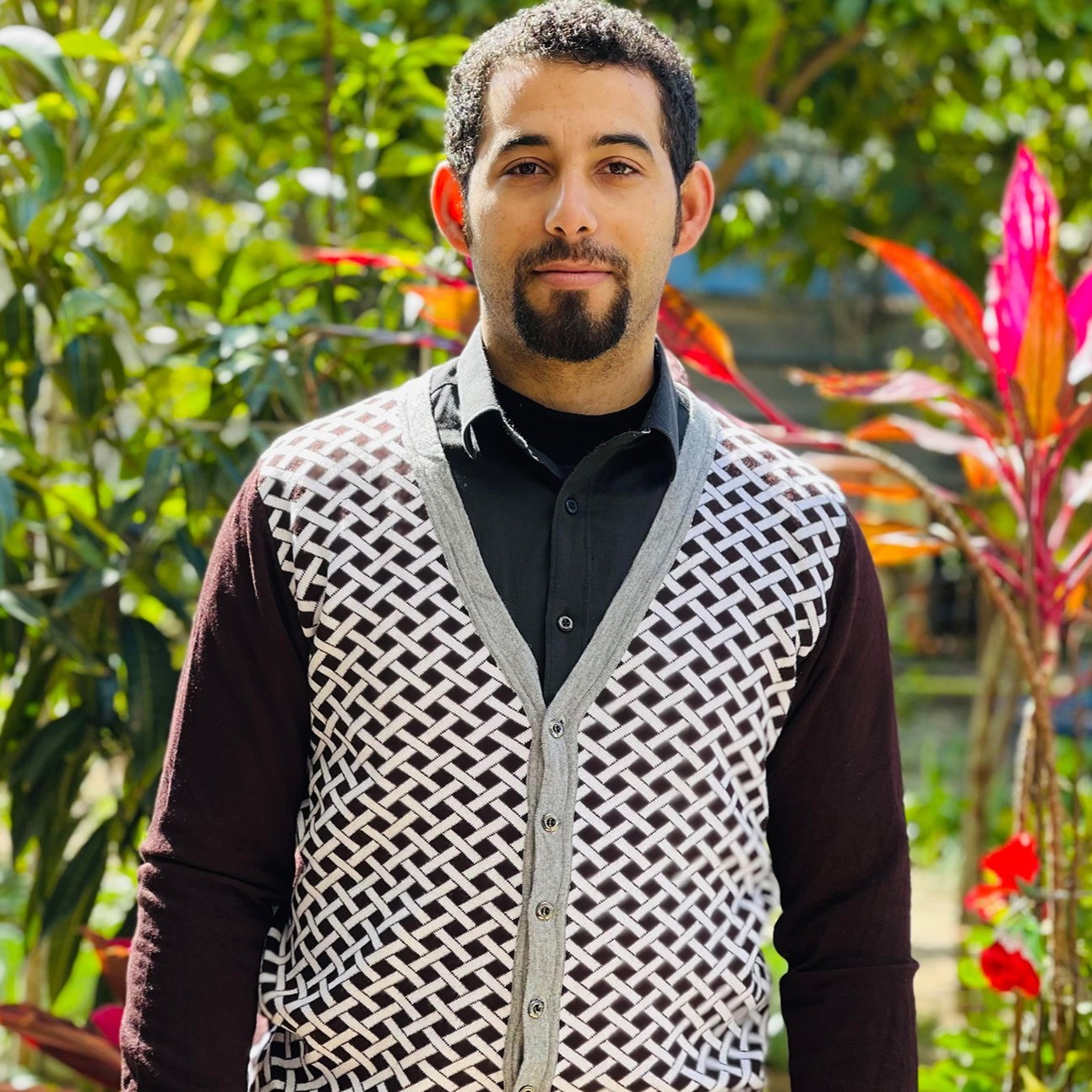My father gave me a difficult name.
Inside it sit two letters that don’t exist in English.
My father didn’t know I would
have English-speaking friends,
always asking how to pronounce my name,
or trying to avoid saying it.
But Dad, I like to hear others address me by name,
especially friends.
Even my name’s root means difficult.
A camel that is described as Mosab
is one that’s difficult to mount and ride.
But I’m not difficult in any way.
I will undress myself and show you
my shoulders, how dust has come to rest on them,
my chest, how tears have wet its thin skin,
my back, how sweat has made it pale,
my belly, how hair has covered my navel,
the spot where my mother fed me before birth.
The same spot, they say, the angel of death
will pierce to take away my soul.
And now, at night, my son’s head hurts
when he rests it on my belly.
And my clothes, I feel them loose,
while others see them tight on me.
When someone from the life insurance company calls
and pronounces my name in English,
I see the angel of death in the mirror,
with eyes that watch me
crumbling onto this foreign ground.
Published:
2022
Length:
Regular
Literary Movements:
Contemporary
Anthology Years:
2023
Themes:
Agency
Identity
Intersectionality & Culture
Literary Devices:
Apostrophe
an exclamatory passage in a speech or poem addressed to a person (typically one who is dead or absent) or thing (typically one that is personified)
Enjambment
a line break interrupting the middle of a phrase which continues on to the next line
Imagery
visually descriptive or figurative language, especially in a literary work
Metaphor
a comparison between two unrelated things through a shared characteristic

